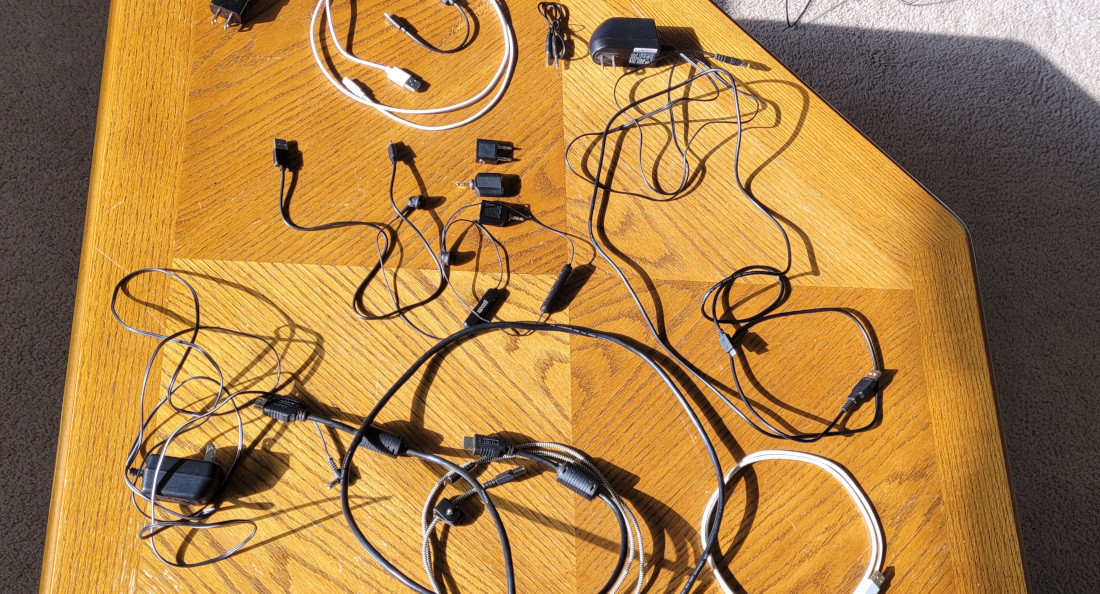Drowning in tech junk
Trying to figure out what to do with it all
In the modern world, tech junk inundates people’s daily lives. Old phones, chargers with frayed cables or the rarely spoken-to Google Nest devices represent the outdated, worn out or useless.
As technologies continue to advance, things that were marvels one week ago are, in a flash, antiquated trash.
It is tempting to pile everything up and throw it away, but these goods are often unsafe for regular disposal. Technologies like phones and laptops include batteries and other dangerous materials, which can create environmental harm if disposed of incorrectly.
This raises the question: What do we do with all this tech junk?
One option is to sell them on the internet. Facebook Marketplace or Kijiji provide the opportunity to see if someone out there is willing to take trash and make it a treasure.
Unfortunately, selling things online can be more complicated than it seems.
Pieces of old tech are often the relic of a significant investment, making them difficult to part with. Attempting to judge whether a once $900 computer is now worth $500, $200, $50 or “just for parts” is often a difficult feat for those who don’t have the time or acumen to research the value of their goods.
At the same time, coordinating times to pick up goods or attempting to drop something off presents challenges, mainly stemming from frequent one-hour delays between messages.
Pieces of tech also hold essential data, credit-card numbers, SINs and bank passwords that, if not correctly deleted, threaten an individual’s security.
Alternatively, old tech can be donated to schools or other programs, giving individuals access to equipment that would otherwise be outside their budgets. This option is noble, but one has to be careful, as the security issue carries over to donations.
Another option is to repurpose old tech for new means. Guides online provide resources to turn an old laptop or smartphone into a retro gaming console or a source for watching streaming services.
Unfortunately, these methods take a lot of time and require tech savvy. Frequently, it makes more sense to buy a Nintendo 64 or a Firestick.
The final, often dreaded, option is attempting to go to a recycling facility to dispose of old tech. Dreaded because finding a recycling depot requires a venture into the mythical industrial park.
Multiple bus rides or kilometres of biking from the urban core, recycling depots are commonly difficult places to get to without a car. Even if the trek is manageable, hauling a pile of computers, phones and cables is not so easy.
Often, it is easier to stuff all the old lightbulbs into a bag in the vain hope that they will be brought on the next IKEA trip.
When buying a new iPhone 15, it is important to consider the inevitability of its eventual disposal. Next year, getting rid of the shiny iPhone 15 might be quite a headache when the even shinier iPhone 16 comes out.
Patrick Harney is the comments editor at The Uniter and a graduate student at the University of Winnipeg. He is surrounded by a lot of old headphones that he isn’t quite sure what to do with.
Published in Volume 78, Number 04 of The Uniter (September 28, 2023)








